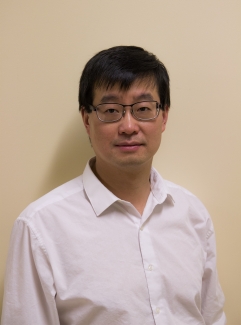President Obama has selected JILA Fellow Jun Ye of NIST's Quantum Physics Division to receive a 2015 Presidential Rank Award. The award cited Ye's work advancing "the frontier of light-matter interaction and focusing on precision measurement, quantum physics and ultracold matter, optical frequency metrology, and ultrafast science."
The Presidential Rank Awards honor a select group of senior Federal employees for “sustained extraordinary accomplishment.” These employees are "strong leaders, professionals, and scientists who achieve results and consistently demonstrate strength, integrity, industry and a relentless commitment to excellence in public service."
Ye was awarded the highest of the two Rank Award levels, the Distinguished Executive, which can be given to no more than 1% of the approximately 6,800 senior Federal employees across the nation. The Award includes a monetary prize equal to 35% of the employee’s base pay, plus a certificate signed by the President.
The award recognizes Ye as a world leader in laser and atomic physics. He has a long and diverse list of major accomplishments, including the world’s most accurate atomic clock, the world’s most stable laser, extreme ultraviolet frequency combs, major advances with ultracold molecules and chemistry (partly with Debbie Jin), pioneering novel quantum many-body phenomena, and many other breakthroughs.
Congratulations to Jun Ye!



 The Physics Frontiers Centers (PFC) program supports university-based centers and institutes where the collective efforts of a larger group of individuals can enable transformational advances in the most promising research areas. The program is designed to foster major breakthroughs at the intellectual frontiers of physics by providing needed resources such as combinations of talents, skills, disciplines, and/or specialized infrastructure, not usually available to individual investigators or small groups, in an environment in which the collective efforts of the larger group can be shown to be seminal to promoting significant progress in the science and the education of students. PFCs also include creative, substantive activities aimed at enhancing education, broadening participation of traditionally underrepresented groups, and outreach to the scientific community and general public.
The Physics Frontiers Centers (PFC) program supports university-based centers and institutes where the collective efforts of a larger group of individuals can enable transformational advances in the most promising research areas. The program is designed to foster major breakthroughs at the intellectual frontiers of physics by providing needed resources such as combinations of talents, skills, disciplines, and/or specialized infrastructure, not usually available to individual investigators or small groups, in an environment in which the collective efforts of the larger group can be shown to be seminal to promoting significant progress in the science and the education of students. PFCs also include creative, substantive activities aimed at enhancing education, broadening participation of traditionally underrepresented groups, and outreach to the scientific community and general public.